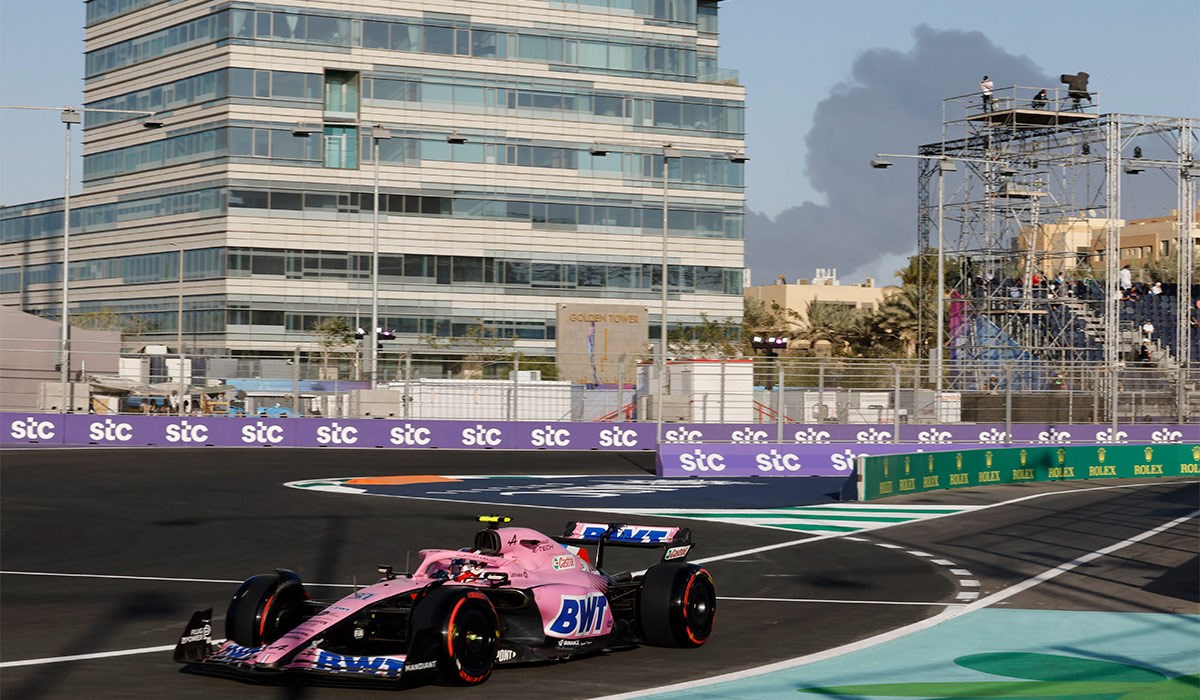Are F1 drivers being threatened by Saudi authorities to race?
The Jeddah F1 race will go on, despite the drivers having concerns over being able to continue the race, but were convinced to race after they were told of "the possible consequences of not racing."
-

The drivers were eventually convinced to go ahead "after being given further information by bosses"
Saudi Arabia's Jeddah Formula 1 race will go ahead as planned following two series of meetings after the Ansar Allah's missile attack hit Aramco facilities in the cities.
The drivers had spent four hours after Friday's practice discussing whether they would race or not. The meetings eventually lasted well into the night until 2:30 a.m, when the team bosses emerged saying there will be a race.
However, it seems that this isn't a case of the drivers voluntarily agreeing to race, as there are allegations of Saudi authorities twisting organizers' arms in order to force the teams into doing this.
Before second practice, F1 president Stefano Domenicali had called the teams and drivers to a meeting, and told them the weekend's race would proceed as planned. Although the drivers were still concerned about racing under these circumstances, as they would not be able to fully concentrate and would remain stressed.
The meeting lasted for four hours, but they were eventually convinced to go ahead and race "after being given further information by bosses," according to BBC Sport.
Part of this information, according to BBC, was the "potential impact calling off the race might have - whether there could be delays in personnel or freight leaving the country."
Unfortunate "mechanical issues"
This brings to mind a 2019 incident, wherein WWE wrestlers taking part in events in Saudi Arabia, were placed in similar circumstances.
Back in November 2019, the WWE cut the live feed to a pay-per-view event being held in Saudi Arabia early, a move that angered Saudi Authorities.
WWE commentator Hugo Savinovish speculated on Facebook Live that this move was a retaliatory move by WWE CEO Vince McMahon due to KSA missing payments in hundreds of millions of dollars to the WWE. The federation denied the allegations when contacted by Forbes.
However, the next day, nearly 200 wrestlers and employees remained stuck in their plane on the tarmac for more than six hours, with the delay being blamed on "mechanical issues" that obstructed them from leaving Riyadh and caused them to miss a live show.
Dave Meltzer, a US sports journalist, tweeted: “Some notes since nobody can say anything. WWE had a problem in Saudi Arabia. Talent was not allowed to leave on their flight and most are still there. 20 people, 12 of which were talent, have left but the rest are still there.”
Meltzer told the radio station Wrestling Observer that tensions grew when military police were sent to the airport.
He added: “The talent felt they were hostages… nobody was harmed or anything like that. It’s a really tense story.”
In F1, Cash is king
F1 six-time world champion Lewis Hamilton had once told those asking him why he thinks the Australian Grand Prix was going ahead amid Covid-19 concerns in March 2020, he famously said “Cash is king. I can’t add much more to it. I don’t feel like I should shy away from my opinion.”
British racing champion Brad Philpot apparently shares Hamilton's outlook as well:
Have some courage and call the damn race off - and let this be a lesson to @F1 that they should avoid doing dodgy deals with countries who are not yet ready for international sport just because the money is attractive. #F1 #SaudiaArabiaGP
— Brad Philpot 🏎🏁 (@BradleyPhilpot) March 25, 2022
This "cash is king" attitude isn't exactly new to the Formula 1 scene. F1 organizers canceled the Russian Grand Prix as part of the recent campaign of Russo-phobia launched by the West. Not only that, but the Haas F1 team dropped Russian Fertilizer company Uralkali as its title sponsor, and Nikita Mazepin - whose father is a majority shareholder in Uralkali - was dropped as a driver.
This was all amid called by F1 champion Max Verstappen's claims that when a country is at war then it's not right to race there.
However, the sport's title sponsor is Saudi Arabia's Aramco oil company, whose branding is laid across every track. F1 organizers have also continuously ignored pleas from human rights groups to change circuits from those in Gulf countries.
None of the drivers would dare mention the war on Yemen, despite countless massacres by the Saudi-led coalition, the latest of which took place on Saturday, in which 12 civilians were killed. In fact, the war on Yemen has just wrapped up its seventh year, with more than 17,000 civilians so far killed by the Saudi-led aggression's raids.
The fact that this race is being held is only testament to the importance Saudi Arabia's authorities give to sportswashing: the act of using sports to whitewash their image, or allow them to circumvent their atrocious human rights record, notably after recently conducting a mass execution of 81 citizens. From the Saudi Public Investment Fund (SPIF) spending billions to buy football teams, to its sponsorship of different kinds of sports events, from WWE to Formula 1, the Saudis seem to give this policy a high priority.

 5 Min Read
5 Min Read








